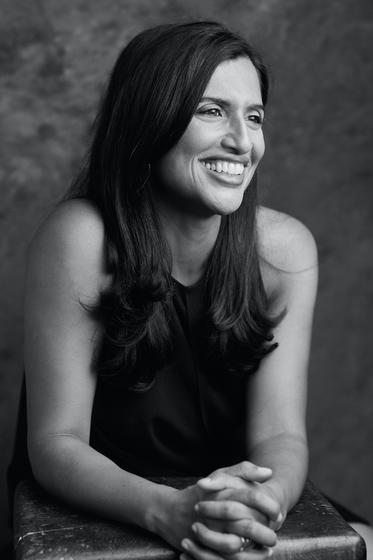Tania James is having an amazing year. Since her novel Loot was released by Knopf in June 2023, the accolades haven’t stopped.
In addition to being named to longlist for the National Book Award, the novel has been included in the Best Books of the Year lists by the Washington Post, Los Angeles Times, NPR, and Kirkus Reviews. And, in 2024, was selected as a DC Reads book by the DC Public Library and the PEN/Faulkner Foundation.
I’ve been really surprised and grateful at how this book has been received,” said James, who teaches in George Mason University’s Creative Writing Program.

Although the novel is often described as historical fiction, James questions this label.
“For the most part, I didn’t approach this novel any differently than I would a contemporary novel,” said James, an associate professor in the Department of English in the College of Humanities and Social Sciences. “To my mind, historical fiction isn’t a genre with clear conventions in the way there are with crime fiction or horror fiction.”
James said the inspiration for Loot began with Tipu’s Tiger, an automaton of a life-size tiger that is mauling the throat of an English soldier. It resides in the Victorian Albert Museum in London and was commissioned by a South Indian ruler the late 1700s.
“Back in the day, you could turn a hand crank and the tiger would grunt and the soldier would groan. It was this darkly comic, sinister object that created a sensation in England. I found it fascinating,” said James.
Loot is set in 18th century India, England, and France, and follows a young woodcarver, Abbas, who is called by the Tipu Sultan to build the tiger, a prize of war, as a gift for his son. It is her fourth novel.
“Loot was the first time I wrote a novel while I was a full-time tenure track professor. I also had two small children, so there were all these new constraints on time, which taught me to be less precious about the conditions in which I can write,” she said.
Writing a novel also requires living with uncertainty for long periods of time, she added. “I was going through old notebooks, and it occurred to me how many different iterations this novel could have taken, some of them terrible and some of them just different.”
At Mason, James teaches fiction writing, and this semester she is focusing on writing novels in ENGH 608 Novel Writing Seminar.
When she came to Mason in 2016, James was mentored by fellow author Courtney Brkic, a professor in Mason’s Creative Writing Program.
Brkic said her mentorship of James was primarily about balancing teaching with her own writing.
“When you come into a new job, there's a tendency to want to tackle it all and volunteer for everything and not take care of your art, but for us in the MFA program, we're not academics. We're working artists,” said Brkic. “Sometimes the balance of serving our department, students, families and serving our art can be a difficult one to strike.”
“Tania is an outstanding teacher,” said Brkic, who invited James to guest lecture one of her classes. “One of the things I've always admired about Tania is that she's so good at seeing nuance in things and helping students to see that nuance. Not telling them, but helping them cultivate that muscle in their heads that helps them to become great writers.”
MFA student Connor Harding in James’s novel writing course echoed that praise of James as an exceptional teacher.
“She engages with people's ideas and asks interesting questions that generate great discussion,” said Harding. “The course definitely has a little bit of something for everybody, especially for people that want to generate writing beyond just understanding it,” Harding said.
“[Courtney] really helped me navigate a world that I wasn't familiar with. I’m constantly learning from her generosity and leadership,” James said.
“In terms of my own work as a writer, one of the beautiful things about being a teacher at Mason has been being in such close proximity to different opportunities that bring great writers to campus like the Visiting Writers Program,” she added.
In the program, faculty bring published writer to campus to do readings as well as run a masterclass. “I oftentimes sit in on those masterclasses for our MFA students because I find them helpful in terms of applying wisdom to my own work and teaching methods,” she said. “I aspire to be the kind of artist who, at some level, will always be a student.”
Related Stories
- November 1, 2024
- September 23, 2024
- January 30, 2024
- February 10, 2023
- October 11, 2022
